Where do you start? Well, to begin with, it’s all about your mindset. If you haven’t got that right, I can assure you that your book will not get written. Let me just say creativity is learned behaviour, and it’s driven by passion. You need to stop listening to your family and friends who say that you don’t have what it takes to write. This kind of mindset of preconceived prejudices about not being a writer adds to a fear of failing, and that is what you need to put away first and foremost. If you keep making excuses not to follow through on the urge you’ve had to write a book because you think it is all too hard. Well, you are not alone; even successful published authors at one stage were in your shoes. You need to remember there is a formula to writing a successful book, so I have put together 16 goals for you to incorporate.
- Goal 1: Find An Idea That Stirs Your Passion.
- Goal 2: Brainstorm Your Favourite Ideas
- Goal 3: Research To Improve The Depth And Richness Of Your Story
- Goal 4: Why Do You Need To Create An Outline?
- Goal 5: Identify Your Target Reader Demographic.
- Goal 6: Why A Universal Theme Makes Your Book Relevant.
- Goal 7: Understand Your Genre And Your Niche In The Marketplace
- Goal 8: Understand Why Your Word Count Matters
- Goal 9: How To Write A Narrative Hook That Will Get Your Readers Excited
- Goal 10: Making Your Dialogue Work
- Goal 11: What Makes A Character Memorable?
- Goal 12: How To Make Your Settings Come Alive.
- Goal 13: Predictability Is It Right Or Wrong?
- Goal 14: The Importance Of A Good Opening Line
- Goal 15: Know How To Manage Your Time
- Goal 16: Writing Rules For Success
- Parting Advice
Goal 1: Find An Idea That Stirs Your Passion.

One of the most incredible experiences is finding the right story idea. JK Rowling said she had never been as excited about an idea as she was for Harry Potter, a scrawny, little black-haired, bespectacled boy who became a wizard. The passion for that idea was the fuel she needed to create a magical world filled with endearing characters and mystical creatures that captured her readers’ hearts one after another.
Find the one idea, the one concept that grabs your interest; it’s sure to send shivers down your spine and provoke a domino effect on possibilities that you will not stop thinking about. If your idea strikes a passionate cord with you, it will resonate with your readers. You can even create your very own treasure chest of ideas from which you can easily extract something priceless for your characters and plot that will eliminate any chances of writer’s block.
“Turning pro is a mindset. If we are struggling with fear, self-sabotage, procrastination, self-doubt, etc., the problem is, we’re thinking like amateurs. Amateurs don’t show up. Amateurs crap out. Amateurs let adversity defeat them. The pro thinks differently. He shows up, he does his work, he keeps on truckin’, no matter what.”
Steven Pressfield
Goal 2: Brainstorm Your Favourite Ideas

Every book needs a unique and rare selling point to capture the reader’s heart. Brainstorming will turn your average story into an extraordinary one, using techniques that explore topics and organise your thoughts. You usually start with an idea, but you need to identify specific issues that include rare and unique selling points or concepts that others have missed.
There are various brainstorming techniques, and once you understand how they work, you can mix and match them for the best results. Your brainstorming activities enable you to eliminate weaker ideas or make them stronger, and it will make it easier to identify your writing voice and style. You will, in addition, be able to see patterns repeating and see your theme emerging.
One technique is to Brainstorm ideas by starting a timer for 10 minutes or use the Brainstormer and for each idea that was significant to you, write “I remember ……….” as fast as you can with whatever comes into your mind.
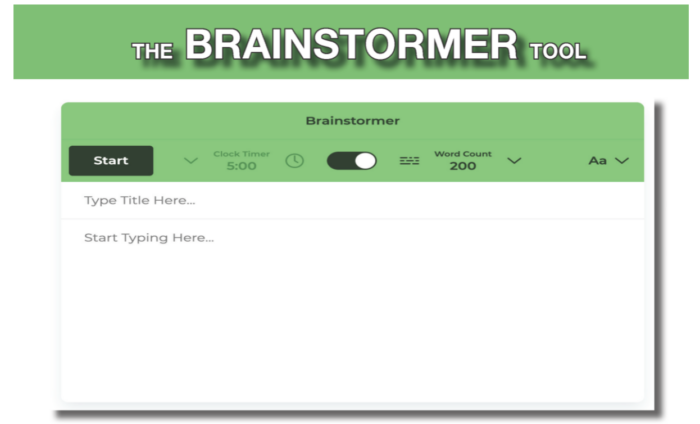
“I sometimes compare my brainstorming on paper to the drilling of oil wells. The only way to strike oil is to drill a lot of wells.”
Tom Monaghan
Goal 3: Research To Improve The Depth And Richness Of Your Story

I read somewhere that you research for authenticity, but you’re not to chase accuracy so relentlessly that it gets in the way of your story. Some authors believe that everything they make up should be supported by two truths – facts and opinions. Your research will separate you from your competition because a well-researched topic or story presents readers with an output that talks directly to their situation. Your credibility as an author hinges on creating trust with your reader. By providing relevant and up to date information when writing non-fiction books, you establish your readers’ trust. By writing compelling stories with well-researched character traits when writing fiction books, your readers will come to love every work you do! So, your research will benefit your readers the most and then you, as the author, next.
Don’t fall into the trap of never-ending research and disappear down the rabbit hole of research and get lost in there. Continual research can be a form of procrastination. Other than that, you will encounter many interesting things while you research, which might delay you further if you don’t snap out of it. When you find other interesting things not related to your subject matter, bookmark them so you can get back to them later when you have time.
“Do research. Feed your talent. Reseach not only wins the war on cliche, it’s the key to victory over fear and it’s cousin, depression.”
Robert McKee
Goal 4: Why Do You Need To Create An Outline?
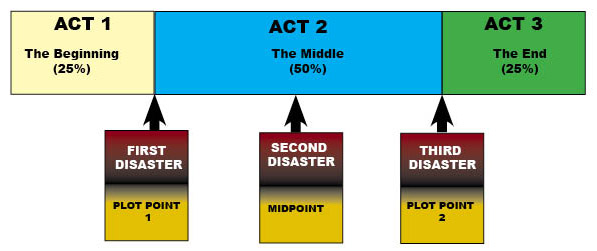
Outlines connect your scenes/chapters, the story’s beginning, the middle, and end milestones. It is the skeleton of your book. Outlining helps you understand the way your story should be structured, including the conflicts and elements that make it interesting. You are not meant to put in every detail, but using outlines will help you identify problems that will save you time. Outlines in your fiction novel will not only help you identify your protagonist/hero character and the issues or conflicts they must face but other characters, the structure, scenes and plot.
When you’re writing, you want some clarity of direction, and that’s what outlining does; it helps you understand the way your story should be structured, including the conflicts and elements to make it interesting.
Your outline is the roadmap that shows your readers the safest and surest way to reach their destination, and it connects with them in an emotionally powerful way.
However, outlining is a divisive subject for many writers. Some writers are almost fanatical about not wanting to be known as a plotter, outliner, architect or planner for their books. These writers are known as Zero Drafters or Pantsers because they want to plunge right in and write basically by the seat of their pants to wherever their thoughts and ideas take them. They believe outlines stem their creativity. Yet they run the risk of writer’s block because they can sometimes write themselves into a corner and not see any other possible story paths. As the old saying goes, they cannot see the forest because of the trees.
There are many great outlining methods to explore whether you choose to use them or not, or if you want to play with different outlining techniques, it is entirely up to you. However, understanding and identifying outlines is beneficial when you want to know where your story is running too fast. Also, find lagging and sagging places, or if some of your characters are not suited to a series. As a writer, you want readers caring about your book, subjects, and characters. Because you want them to become invested in the outcomes. If the readers are confused about the journey, they won’t read any further.
“I’m doing the outline (of my story) upfront so I always know where I’m going. I work on the outline for weeks, months, sometimes even years if I can’t get it right. But when I start the book on January the first to finish by July the first, I’ve got a clear outline – I know exactly where the story’s going – I know how it’s going to end. I love John Irving books, and John Irving says he writes the last sentence before he writes the first. I’m not that smart, but I know what the last scene is before I write the first scene. It’s important to outline because if you don’t know where you’re going you can waste huge amounts of time.”
John Grisham

In Package 1: How to Plan a Book from Idea to Outline
We have designed a course about understanding the different outlining methods you can choose from. Finding the right type of outlining method will help you create a framework for your book without sapping your story.
Goal 5: Identify Your Target Reader Demographic.

By defining your audience, you define your market. Knowing your target audience will help with all decisions you make regarding your book/s, from the words you use to the structure you employ to helping identify key elements of your cover.
Suppose you try to write for everyone and make everyone happy without offending anyone. In that case, you are in danger of your book/s turning out lukewarm, and you will have an indifferent market, nobody talking about it, and your book sales will fizzle. It is better to focus on one target market with a strong emphasis on an issue or topic they identify with than try to put all topics into one book to reach all types of audiences.
You can’t build a relationship with your readership if you don’t know who they are. Your readers are not dollar signs with legs, and you need to know how to connect with them. It’s about knowing where your reader lives, what demographic they are in, what they do, what they like. It is not enough to just hear about them; you must understand how they feel and think about certain things.
Often your target reader will parallel to an extent with your main character. There will be someone out there who will, in a way, identify with the situations and events your main character is in. They may even have the same personalities that you gave your character. These people are the perfect target audience.
Publishers have stated that your protagonist should be about three years older than your target market. You can use this as a guide to define and identify your target audience and demographic. The protagonist, being three years older than the reader, becomes a mentor, in a way, to your reader. Your reader listens to the protagonist and pays attention to what they would do in certain circumstances.
“Your target market and their demographics realistically need to be in alignment with your own beliefs and morals, or you may have trouble reaching out to them – or keep them once others have entered the market.”
Michael Gerber
Goal 6: Why A Universal Theme Makes Your Book Relevant.

The theme is the central idea that connects and weaves all story elements together. Some call it the pulse, the heartbeat and soul of the story. Therefore, it is essential to understand and craft a powerful theme that will underpin your message to make your book relevant and relatable for readers. Having a universal theme applies to the success of both non-fiction and fiction books. To find your theme, you need to work out the central conflict in your story, which opposes your character or reader because it’s connected to your protagonist and reader’s inner journey, their concern and passion. There are many different themes, and every powerful theme pits the message issue against a counterpoint, for example:
Good vs Evil
(this theme is about a battle between good and evil, and it will either be physical and external or mental and internal).
The Individual vs Society
(this theme is about liberty being the most cherished fruit of life and the prerogative of all living things).
Rags to riches
(this theme explores the concept that anyone and everyone wants to realise their dream)
Overcoming the odds
(this theme is about triumphing over adversity by overcoming an insurmountable obstacle or challenge)
Man’s struggle against nature
(this theme explores the fragility of mankind and nature, whether it be in the natural world or human nature)
“For me, not knowing your theme until your finished is like using a scalpel to turn a kangaroo into Miss Universe. There will be a lot of deep cuts, and there’s a high chance it won’t work.”
David G. Allen

In Package 2: Target Audience and Demographics for Books
We have designed a course about choosing the theme of a book that goes into much greater detail about universal themes and how to craft a power that will underpin your message to make your book relevant and relatable to readers.
Goal 7: Understand Your Genre And Your Niche In The Marketplace
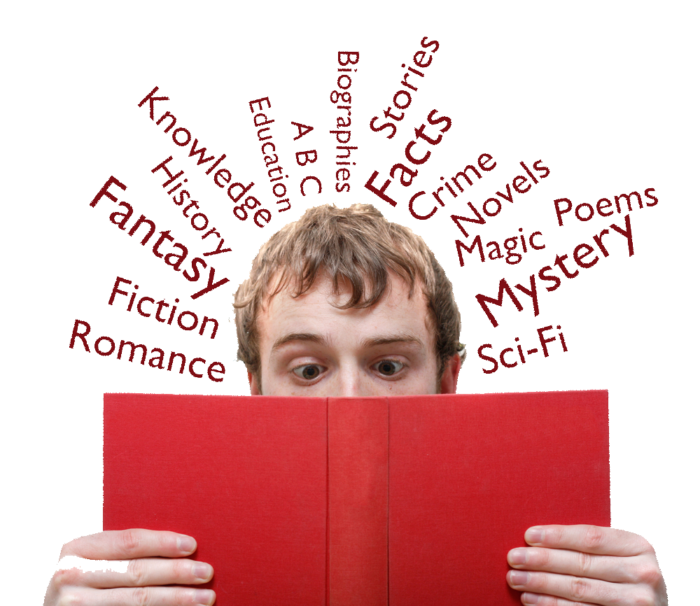
Genres are determined by narrative technique, tone and content. In other words, whatever is dominantly consistent in the content of a book, will become its genre. Genres are guidelines to create a story that attracts a distinct target audience; without these guidelines, you won’t reach the right target. Books are arranged by genre when looking for them in a bookstore or library. The right genre will attract the right audience, and the right audience is composed of people who are actively looking for a book like yours. Each genre has its own word count, so don’t go tapping on your keyboard until you’re too exhausted to write. Instead, find your genre and what publishers require in terms of word count. If you are trying to appeal to everyone and anyone in the genre market, you will have a lot of competition unless you strive to go more niche into the micro-genres. Here is an example of subgenres and micro-genres.
Genre
Self Help
Subgenre
Dating
Micro-genre
- Dating advice for men
- Dating advice for women
- Dating advice for virgins
- Dating advice after a divorce
- Dating advice for the disabled
- Dating advice in college
- Dating advice in the workplace
- Dating violence among teens
- Dating someone with depression
- Dating older men
- Dating younger women
Genres are all about reader expectation, and if your story doesn’t meet them, you might as well say it’s over. However, staying true to your genre is vital for writing your book, so start planning how to approach this aspect to meet your readers’ expectations.
“A great artist is not one who merely fits into a genre but one who defines the genre.”
Vikas Swarup
Goal 8: Understand Why Your Word Count Matters

One simple area that is often misunderstood is word count. A word count is a numerical count of how many words your manuscript contains. Depending on the requirement of publishing companies, the word count may include all pages or just the main content. Your genre usually dictates your word count. Likewise, genres have different formats and requirements for how many words are allowed or recommended.
Adhering to the expected word count demonstrates you understand your market. Literary agents and publishers will always look more favourably on submissions that meet the genre expectations. Before you start writing, knowing your word count helps you plan your writing schedule. No matter how focused or motivated you are, there is a limit to how many words you can write in a day or within any given period. Being aware of the word count you need, you can create a more realistic plan for approaching your writing.
However, don’t let your word count block your creativity. There is no need to stress whether you are under or over in your words; you can address this later in the editing stage. Compare books in your genre similar to yours and see their word count compared to yours. Keeping track of your word count will help strengthen your writing performance. Here is a general guideline of genre word counts:
Non-Fiction Books
- Health, Fitness & Dieting books = 50,000 – 75,000 words
- Parenting & Relationships books = 40,000 – 75,000 words
- Religion, Inspirational & Spiritual Books = 40,000 – 75,000 words
- Self-help books – 40,000 – 90,000 words
- Cookbooks, Food and Wine books = 50,000 – 200,000 words
- Travel books – 40,000 – 70,000 words
- Business, Money & Investing books = 70,000 – 150,000 words
Fiction Books
- Action & Adventure = 60,000 – 150,000 words
- Erotica = 80,000 – 100,000 words
- Fantasy = 80,000 – 100,000 words
- Historical Fiction = 100,000 – 120,000 words
- Horror = 80,000 – 100,000 words
- Mystery, Thriller & Suspense = 70,000 – 90,000 words
- Paranormal = 75,000 – 95,000 words
- Romance = 70,000 – 100,000 words
- Science Fiction = 90,000 – 125,000 words
- Young Adult = 50,000 – 80,000
Children’s Books
- Picture Books = 300 – 800 words
- Early Reader = 200 – 3,500 words
- Chapter Books = 4,000 – 10,000 words
- Middle Grade = 25,000 – 40,000 words
“I like to get ten pages a day, which amounts to 2,000 words. On some days those ten pages come easily; I’m up and out and doing errands by eleven-thirty in the morning. More frequently, as I grow older, I find myself eating lunch at my desk and finishing the day’s work around one-thirty in the afternoon. Sometimes, when the words come hard, I’m still fiddling around at teatime. Either way is fine with me, but only under dire circumstances do I allow myself to shut down before I get my 2,000 words.”
Stephen King

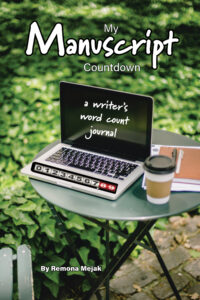
If you need help tracking your word count, then these creative books are designed to help you (the author) become more productive and meet industry standards.
Take control of your writing project and see how productive you are. These books literally help you track the time you spend on your manuscript in one place to measure your progress.
Goal 9: How To Write A Narrative Hook That Will Get Your Readers Excited

A narrative hook is a term used to refer to the opening sentences or paragraphs of a literary work. It is also simply known as a “Hook”. It sets the story’s pace, mood, tone, and atmosphere. The first paragraph or the first sentence gets the readers engaged in their reading. A narrative hook should create the excitement that there’s more to be read than just a few sentences or paragraphs that are already in front of the reader, this is because your Hook is the “magic” in your story that will arouse curiosity and create interest in what will happen next.
For non-fiction books, the narrative hook can be information that the reader did not know is true – it surprises the reader! It could be new knowledge. It could be a connection between two characters that the reader did not expect in fiction books. There are many different types of hooks to explore that successful authors have used to capture the heart of their readers.
To find your Hook, you must understand your premise – that unique aspect that makes your story stand out. Your premise is what supports the main focus of your story. It backs up claims in your story – think of your premise as your proof or evidence that builds your story’s credibility. Writing a hook based on your story’s premise means introducing what your book is about to your reader in a way that would grab their attention and will make them read the book from cover to cover.
“Whether you do stand-up comedy or write a story, you have a duty to deliver. As a comedian, you walk out on stage, and you have a minute to hook them, or they’ll start booing. As a writer, it’s very similar. A reader doesn’t have time to say, ‘I’ll give him 50 pages, as it’s not very good yet, but I hope it’ll get better.'”
Mark Billingham
Goal 10: Making Your Dialogue Work

Dialogue is described as the conversation between two or more characters in a story. Dialogue cannot happen with one person, although an inner dialogue, which is a conversation within oneself (better known as talking to self), is often considered dialogue in today’s modern definition.
Authors develop their characters and define their characters’ personalities through dialogue. The dialogues reveal what types of persons the characters are. Their views on things, attitudes, and personalities come to light through the dialogue.
Dialogue should impart information, but not in an obvious manner. In dialogue, characters will talk about information relevant to the story, making the story more compelling. The dialogue is not just there because it has to be. It has a purpose, and imparting information is part of it.
Write down notes of what you think the characters should be saying or would be saying to each other. Your notes can be started as drafts, do not think about making the conversation perfect in the first round. The notes you write down will help you know more or less where the dialogue is going and what it will accomplish.
“Dialogue is the place that books are most alive and forge the most direct connection with readers. It is also where we as writers discover our characters and allow them to become real.”
Laini Taylor
Goal 11: What Makes A Character Memorable?

Characters you love or love to hate: The worst thing about a character is not that you hated them, but you found them uninteresting. When a character loses a reader’s interest, it is no longer relevant to the story. So to make your character memorable, you can turn them into someone readers will love or someone readers will hate.
The most memorable are the ones who remind us of ourselves. Think about your readers and what they must be feeling, thinking, or going through. Give your character those same feelings, thoughts and circumstances. Your readers will relate to your character without question, and they will not forget them even after reading your book.
Characters are important, both in fiction and non-fiction. You want to capture that person’s essence, strengths, flaws, idiosyncrasies, and external and internal conflicts. This is what brings your story to life. This is what the reader will relate to. You need to understand your characters by building a character profile and backstory as a writer. People are driven by emotion, so you need to understand your characters’ different emotional triggers to relate to your readers.
“Characters want things. They need things. They are motivated by these desires and requirements and they spend an entire story trying to fulfil them. That’s one of the base level components of a story: a character acts in service to his motivations but obstacles (frequently other characters) stand in his way. We need to know what impels a character. What are her motives? If we don’t know or cannot parse those motivations, her role in the story is alien to us.”
Chuck Wendig

In Package 3: Book Structure Essentials
We have designed a course on how to capture the essence of a person with life-like characters that enrich your story with human strengths, flaws and emotions. We also have a handout with descriptions of over 170 different characters that you will find invaluable.
Goal 12: How To Make Your Settings Come Alive.
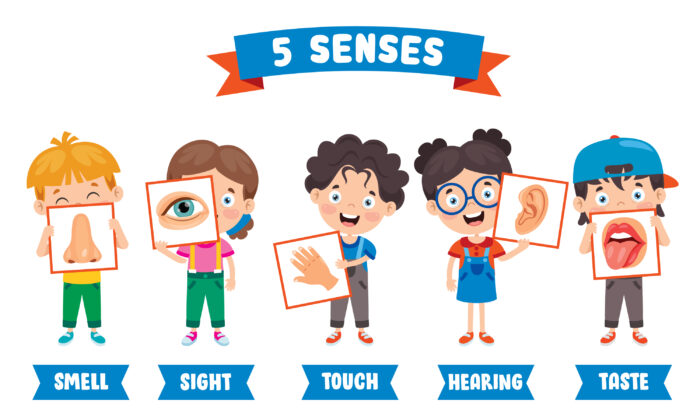
To make your setting come alive, you as a writer must draw on your five senses: sight, taste, touch, smell and sound. Many writers use sight, but this is a mistake because it makes the writing two-dimensional. Readers will feel like the story does not provide enough information they need to know or expect the first time. Of course, you have to describe how something looks, but you also need to include descriptions from the other senses. Do not expect all readers to favour the sense of sight alone over other senses when reading your novel.
Think about what the room smells like. List down several types of smells. Pick which smell you would like to use from your list in your novel. Find other words or synonyms to use to describe that same smell.
What does the sand feel like under the character’s feet? Readers will always put themselves in the character’s shoes. So describing how the sand feels under the character’s feet is like bringing the reader into the story’s place. The reader will feel it and sense it the way you describe it. Is the edge of the mountain cutting into the character’s hands? Create suspense and thrill in your novel by describing the physical struggles of the character.
Describe the way the character’s favourite meal tastes. Your readers will know more about your character based on what food they favour most. So, for example, readers can tell your character is vegetarian or cake lover or wine drinker, etc., by your description of their meal.
In using the five senses to make your setting come alive, you don’t need to attempt to paint the complete picture or describe every tree, every person, or every building in sight. Your goal is to bring your reader into the character’s world through the five senses. You don’t have to describe the most minor details, such as how many birds are up in a tree or how wide a park is, unless they contribute to moving your story forward. You can, instead, focus on just a handful of details and allow the readers to paint the rest of the picture for themselves. It gets them into the story voluntarily. It creates excitement as they read your novel and gets them really engaged.
“Locaton pertains to feelings – feelings are bound up in a place.”
Eudora Welty
Goal 13: Predictability Is It Right Or Wrong?

Predictability in writing is when the readers can predict a story’s outcome. They looked at the story, and they knew exactly what would happen. The story usually comes around as expected; you may have predicted a story’s outcome yourself when reading someone else’s novel. For example, a love story that starts with “hate at first sight” gradually turns into friendship, then into love. The pattern is so predictable. For example, a common scenario would be – a girl meets a boy she hates. They both find out they can agree on something, become friends, then later discover they are falling for each other; eventually, the love affair becomes stronger their love is confirmed. This is what predictability in writing is.
Predictability, when used correctly, will make a story great. Although not all readers will want predictability in a story, most will want an idea of what will happen next. It helps to keep them curious and engaged. It keeps them on the Hook, wondering if their predictions will happen or not. Authors can leverage predictability to lead readers to understand the story’s purpose.
Every time you ask the “What if?” question, you open new ideas or views on a challenging situation, conversation, or writing. For example, “What if I let the character ride a bike instead of a limousine?” “What if the hero is not a man but a woman?” These two example questions will give you totally new ideas.
By asking this question, you think of new solutions that probably weren’t there before. It brings the best work out of your brain. It opens possibilities rather than impossibilities. You are forced to think outside the box, around it, or you may even be forced to remove the box! The “What If?” question gives you hope and improves your creative and critical thinking skills.
“Years ago, during a John Grisham phase, I tried to pinpoint exactly why I found Grisham’s often predictable legal thrillers quite so comforting. The best answer I could come up with was the frequency with which Grisham tells us that his lead characters are sipping coffee. When it comes to food and drink, predictability can console.”
Bee Wilson
Goal 14: The Importance Of A Good Opening Line
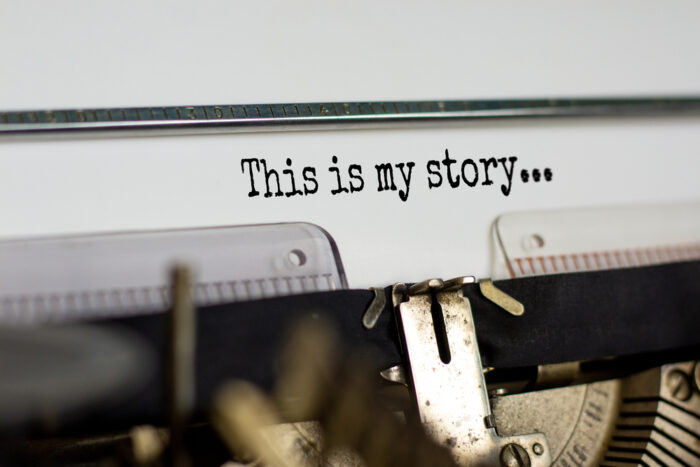
It doesn’t matter if you’re baking a cake, talking in public or running a race – if you start well, you are more confident, more involved. Well, it’s even more important when you’re writing a book. You want the reader to be drawn in, engaged, excited, and interested.
It is essential to hook your reader with the first sentence of your story. Once your reader is hooked, they will read your book to the end. If you fail, though, the reader may not pick your book up again – worst-case scenario, may not read any of your other books, too.
Your first sentence is what tells your readers whether what you are presenting them with is worth their time or not. Then, a good hook will establish the notion that you are a great writer and that your book is worth reading. Therefore, your goal when writing your first sentence should be to motivate your readers to stay and read.
Writing a book is an awesome endeavour. Yet, many writers fail to understand how important it is to begin a book correctly. A good opening line invites imagination, thus, creating a picture of the character or setting in the reader’s mind. A good opening line does not start with the weather condition. It does not talk about the waking hour of the main character. For an opening line to invite readers to imagine and to paint pictures in their minds about the character and/or the setting, you must write something interesting.
A good opening line leads the reader into the scene of the story. By putting something into motion in the story, you grab the reader’s attention. A good opening line should start that motion. Let it pull the reader right into the story’s scene. Let the reader be part of the story. If you can do this, the reader will love your book and all your other books that follow.
Here are some examples of great opening lines:
Fiction Books:
“It was the best of times, it was the worst of times, it was the age of wisdom, it was the age of foolishness, it was the epoch of belief, it was the epoch of incredulity, it was the season of light, it was the season of darkness, it was the spring of hope, it was the winter of despair.”
Charles Dickens, A Tale of Two Cities
“Ships at a distance have every man’s wish on board.”
Zora Neal Hurston, Their Eyes Were Watching God
“On the morning the last Lisbon daughter took her turn at suicide—it was Mary this time, and sleeping pills—the two paramedics arrived at the house knowing exactly where the knife drawer was, and the gas oven, and the beam in the basement from which it was possible to tie a rope.”
Jeffrey Eugenides, The Virgin Suicides
“I have never begun a novel with more misgiving.”
W. Somerset Maugham, The Razor’s Edge
Non-Fiction Books
“I arrived in the Alice at five a.m. with a dog, six dollars and a small suitcase full of inappropriate clothes.”
Robyn Davidson, Tracks
“On May 7, 1931, the most sensational manhunt New York City had ever known had come to its climax.”
Dale Carnegie, How to Win Friends and Influence People
“Either this will ring bells for you, or it won’t.”
Lynne Truss, Eats Shoots and Leaves
“This book does not claim to be an account of fact and events but of personal experiences, experiences which millions of prisoners have suffered time and again.”
Viktor E. Frankl, Man’s Search for Meaning

In Package 4: Book Development and Style
We have designed a course to help you refine your writing style and avoid common writing mistakes to produce a professional manuscript. As a writer, it’s important to know how to nail the beginning and ending of your book because that’s what a reader remembers. We have handouts that contain 150+ best opening and closing lines for both fiction and non-fiction.
Goal 15: Know How To Manage Your Time

The one resource we never have enough of is time. Everyone feels too busy and pressured. Yet successful authors, like great business people, have put in place systems and processes that allow them to be productive.
By successfully managing time, you avoid procrastination and get more things done in a day. While avoiding procrastination is not an easy task, it is not impossible either. You start with a decision to manage your time wisely and beat procrastination. Some of the things you can do to beat it and gain the benefits from a completed to-do list are to make your list realistic and then work on one task on that list immediately; plan the following day ahead—before you sleep or before you start your day. If you cannot complete everything on your list for some reason, forgive yourself and move forward. Otherwise, you’ll be stuck, and you’ll just keep postponing all other things.
“I read for 2 hours. 1 hour of fiction, 1 hour of good non-fiction. The fiction has to be HIGH quality. Then 2-5 hours of writing. Every day. Seven days a week.”
James Altucher
Make A Writing Schedule And Follow It.
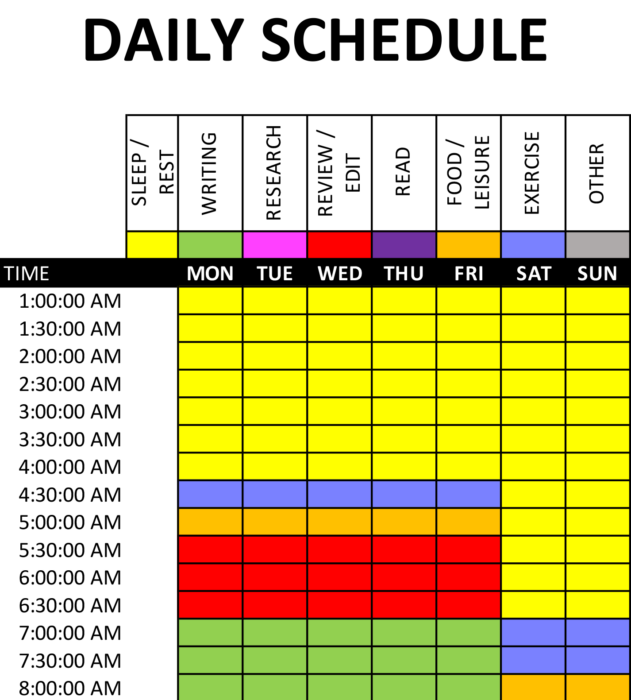
Even if you’re writing on the side and have more pressing concerns to face in your regular job, you can still write at least 500 to 1000 words per day. Of course, this will not be an easy task at first, but once you’ve built your habit, it will all come naturally to you. To successfully set up a writing schedule, you need to start by waking up early. You can wake up early if you’ve gone to bed early the night before. So “early to bed, early to rise” will make your writing habit successful. Next, you must mark a time for writing in your writing schedule, even if it’s just 30 minutes to one hour. Do not do anything during that time except write. Do not mix your reading time with your writing time. If you want/need to read, set a separate time. This will help you get focused.
Don’t Set Unrealistic Deadlines

Even if your purpose is to beat your previous deadline. To set realistic deadlines, you start by looking at the project at hand. Is it something you can complete within your expected timeframe? If it seems too big, try breaking it down into smaller tasks. Be specific with what you want to accomplish for each task and when you want it to be completed. Then, move to the next task immediately if you were able to finish the other task early. This will help you beat the deadline and have enough time left to relax or do another project.
Remove Distractions

That do not help you manage your time to meet your deadlines. Some of the distractions are social media, emails, notifications, games installed on your phone, and unexpected visitors, among others. The first step to removing these distractions is to put them out of your sight whenever you work. You can do that to social media distractions by logging out of all social media accounts and disconnecting your computer from the internet. At the same time, you write so you don’t get tempted to open your browser unless you need the internet for your research. Keep your phones inside your drawers or somewhere far from your place of work and only get alerts when there’s an emergency situation. Put a “do not disturb” sign on your door and tell family members that unscheduled appointments with you are a no-no. So when someone comes to your house, your family members can say to them to come back when you’re free.
Set A Timer

See how much you can do in 15 minutes, 30 minutes, or an hour. Knowing how much you can do at certain intervals is good if you’re not distracted. It will help you schedule your tasks more suitably. You will learn how much you can write per hour, day, or week. This is important when you want to be on time at all times.
Find The Right Place And Right Time

To be an excellent writer, you need to establish a daily writing routine. Doing this involves finding the right time and the right place to write. For example, some writers are comfortable writing while on vacation. Others prefer to write in an environment where they feel they are ‘at work’.
It is vital to set up your daily routine to ensure the success of your book. Without a routine, you may end up spending more time writing than you have planned. Finding the right place also helps you be more productive. For example, nature can inspire some writers, while looking at sky-high buildings may encourage more ideas in others. Others may prefer to write during the night, while some prefer the early morning when nobody is awake and feel their bodies are well-rested.
In other words, you can choose the place, the time, and the daily routine to follow to produce an extraordinary output. One thing these all have in common is ‘productivity’. So, find the place, the time, and the routine that will make you more productive.

In Package 5: Creative Writing Techniques for Successful Book
We have designed a course to help you understand time management through priorities, scheduling and many other tools that will help you be at your most productive. We also show you ways to identify and elimate time wasters.
Goal 16: Writing Rules For Success

Reading should become part of writing. A writer who says they don’t need to read is a writer who will not last in the industry. The more you read, the more you build up your vocabulary and gain knowledge from other writers. Reading is what fuels writing. You get new ideas when you read. You go to places and meet people in your reading. You learn something you may not know before. You get inspired and motivated, plus, you learn how to write your book better by observing how other writers wrote their books.
Think of reading and writing as the musician and their music. They cannot be separated. A musician cannot be called a musician if he only plays music but doesn’t listen to it. A musician is nothing without his music. So, a writer cannot be called a writer simply because he writes! He also has to read; otherwise, he’ll be like a car without fuel, left to rust in his own world somewhere in a garage.
“Read a thousand books, and your words will flow like a river.”
Lisa See
Being relatable tells your audience that you are a human being, like anybody else, who have strengths and weaknesses. To be relatable, you need to embrace your strengths and weaknesses alike. For example, you must accept that you are prone to commit mistakes as a human being. The exciting part in this relatability is when you turn your writing mistake into something you learn from and then turn your learning into success. With both experiences of failure and success, you can effectively show your readers that you can relate to whatever they’re going through in your writing.
Being relatable and honest in your writing means you are true to your writing style. You do not try to copy someone else’s style. You do not envy someone whose style seems better than yours. You work hard towards becoming a better writer for your readers instead of focusing on becoming better than the competition. You are true to your voice and the genre you chose. When you are relatable and honest, your readers will trust you.
Knowing, celebrating, and speaking in your unique writing voice makes you stand out among other writers. Clearly, because you have a voice that other writers cannot replicate. Your unique voice will tell a story of its own, not imagined and clearly not a story that comes from other writers. Other writers have their own; you have yours. You can maximise or utilise your voice to its highest potential when you know your voice. It is your job to discover your unique voice if you haven’t yet or are unsure whether or not you’re using your voice or someone else’s.
“Start writing, no matter what. The water does not flow until the faucet is turned on.”
Louis L’Amour
Parting Advice

I have deliberately chosen not to focus on the steps to publishing your book in this article. Instead, it is written for those who need help on how to write a good book, and this article is written as a guide highlighting the 16 goals you need to have when writing your book.
Having a goal gives you purpose and direction. It gives you something to look forward to. As a writer, you need focus to accomplish your purpose for your book, and your goal will help you achieve that. Without a goal in mind, your writing will have no specific reason to be published. It will have no clarity of purpose. You will not establish an audience, and you may even be unable to produce a great story. So, having a goal should not be optional, you should make it a priority before you start.
Goals help you determine how you will use the resources available to you. It will help you find your motivation when you’ve lost it. Most of all, you will have better time management – time is a commodity that cannot be taken back or replaced once it’s gone. So, having goals in place will ensure you don’t waste a bit of your time in nonsense thoughts, ideals, and activities. Goals will also help you decide more firmly and accurately because you are confident, and your mind is ready. Becoming to be a smart and successful writer, you need to make the right choices. Let me know if this article helped you.
Some of our important choices have a timeline. If we delay a decision, the opportunity is gone forever. Sometimes our doubts keep us from making a choice that involves change. Thus an opportunity may be missed.
James E. Faust

Set yourself up Success
Learn how to do research for a book and lay the foundations for a compelling and realistic story.
